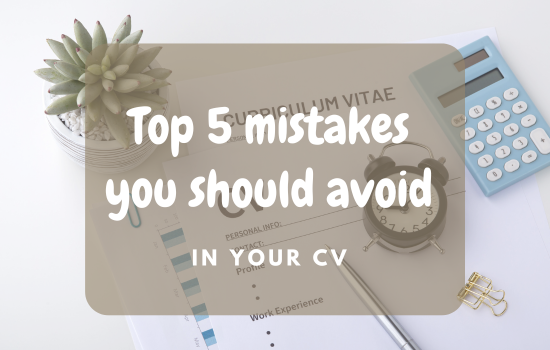


Landing your dream job in Vietnam, whether it's teaching English or pursuing another exciting career path, hinges on a strong first impression. Your CV (Curriculum Vitae) acts as your professional introduction, showcasing your skills, experience, and qualifications to potential employers. However, even the most talented candidate can stumble at the starting line with a poorly crafted CV. Here, we'll explore the top 5 mistakes you should avoid to ensure your CV shines in the Vietnamese job market.
While it's important to showcase your experience, a CV shouldn't be a novel. Aim for a concise document, ideally one to two pages long. Recruiters in Vietnam, especially in fast-paced industries, often face a barrage of applications. A lengthy CV forces them to spend more time sifting through irrelevant details, potentially leading them to pass over yours.
Focus on Quality Over Quantity:
Instead of listing every job you've ever held, prioritize the positions most relevant to the specific role you're applying for. Highlight your key achievements, responsibilities, and skills used in each role. Utilize strong action verbs and quantifiable results to demonstrate your impact. For example, instead of simply saying "taught English," state "developed and implemented engaging lesson plans for diverse student groups, resulting in a 20% improvement in average test scores."
Visual appeal matters. While a splash of color might seem eye-catching, an unprofessional font choice can detract from your CV's impact. Stick to classic, easy-to-read fonts like Arial, Times New Roman, or Calibri. Avoid using fancy scripts, decorative fonts, or excessive font variations. Consistency is key. Using the same font for headings, body text, and bullet points creates a clean and professional look.
Special Note for Vietnamese Fonts:
If your CV includes Vietnamese text, ensure you use a widely recognized Vietnamese font like Times New Roman (Times New Roman Tiếng Việt) or Arial (Arial Unicode MS). Avoid using decorative or non-standard Vietnamese fonts, as they might not display correctly on all computer systems.
Your CV should be a targeted document, tailored to the specific job you're applying for. Filling it with irrelevant experience might seem like a way to showcase your versatility, but it can actually confuse recruiters. They're looking for someone who possesses the specific skills and experience needed for the role.
Tailoring Your CV:
Take the time to carefully read the job description and identify the key requirements. Then, tailor your CV to highlight the skills and experience that directly match those requirements. Use keywords from the job description throughout your CV, especially in your profile summary and descriptions of previous work experiences. This demonstrates a strong understanding of the role and increases your chances of getting shortlisted.
A typo-ridden CV makes a bad first impression. It suggests carelessness and a lack of attention to detail, qualities that are undesirable in most professional settings. This is especially crucial if you're applying for a teaching position in English.
Proofread, Revise, Repeat:
Proofreading your CV is an absolute must-do. Read it yourself multiple times, paying close attention to grammar, spelling, and punctuation. Consider having someone else with a keen eye review it as well. Utilizing online spell-checking tools can be helpful, but they're not foolproof. Trust your own eyes, and double-check everything.
The most critical mistake to avoid is creating a fake CV. It might seem tempting to embellish your experience or create qualifications that you don't actually possess. However, this is a recipe for disaster. Most employers conduct background checks, and getting caught with a fabricated CV could damage your professional reputation for years to come.
Focus on Your Strengths:
Be honest and truthful in your CV. If you're lacking specific skills or experience, focus on highlighting your existing strengths and eagerness to learn. You can also showcase transferable skills from previous jobs or volunteer work that demonstrate your ability to adapt and succeed in a new environment.
By avoiding these five cardinal mistakes, you'll be well on your way to crafting a compelling CV that captures the attention of Vietnamese employers. Remember, your CV is a window into your professional identity. Invest time and effort into creating a document that accurately reflects your skills and experience, and you'll be setting yourself up for success in the exciting job market of Vietnam.
Copyright © 2024.Company name All rights reserved.